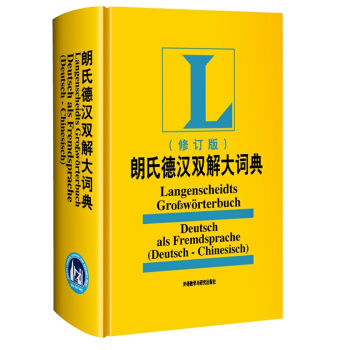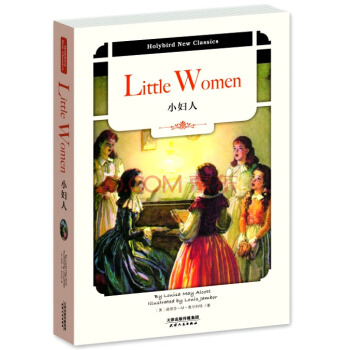

具体描述
编辑推荐
美国作家路易莎·奥尔科特的代表作《小妇人》,一部美国文学的经典著作,一本道德家世小说。马奇家四姐妹对自立的权力的追求,以及她们对家庭的忠诚眷顾构成了全书一贯的矛盾,使故事熠熠生辉,情节生动感人。《小妇人》出版后获得了巨大成功,成为公认的美国名著,100多年来一直受到读者热烈欢迎。入选美国图书协会、美国教育协会100种学生必备书,其中又精选出25种,《小妇人》列居榜首,世界上已有数十种不同语言的译本,30年代此书已风靡中国大陆。
本书为英文原版,同时提供配套英文朗读免费下载,下载方式详见图书封底博客链接。让读者在阅读精彩故事的同时,亦能提升英文阅读水平。
内容简介
《小妇人》美国作家路易莎·奥尔科特代表作,本书以家庭生活为描写对象,以家庭成员的感情纠葛为线索,描写了马奇一家的天伦之爱。马奇家的四姐妹中,无论是为了爱情甘于贫困的梅格,还是通过自己奋斗成为作家的乔,以及坦然面对死亡的贝思和以扶弱为己任的艾美,虽然她们的理想和命运都不尽相同,但是她们都具有自强自立的共同特点。着重描写了她们对家庭的眷恋;对爱的忠诚以及对亲情的渴望。本书故事情节简单而真实,感人至深,问世一百多年以来,多次被搬上银幕,并被译成各种文字,成为世界文学宝库中的经典名作。
本书为英文原版,同时提供配套朗读免费下载,下载方式详见图书封底博客链接。让读者在阅读精彩故事的同时,亦能提升英文阅读水平。
Little Women is a novel by American author Louisa May Alcott, which was originally published in two volumes. Alcott wrote the books rapidly over several months at the request of her publisher. The novel follows the lives of four sisters—Meg, Jo, Beth, and Amy March—detailing their passage from childhood to womanhood, and is loosely based on the author and her three sisters. It is an outstanding achievement of nineteenth-century American literature, and the first children's novel written in the United States to have become an enduring classic.
The book has been adapted for film twice as silent films, and four times with sound, in 1933, 1949, 1978 and 1994. Four television series were made, including two in Britain in the 1950s and two anime series in Japan in the 1980s. A musical version opened on Broadway in 2005. An American opera version in 1998 has been performed internationally and filmed for broadcast on US television in 2001.
作者简介
路易莎·M·奥尔科特(1832-1888),美国作家。1832年11月29日出生在宾夕法尼亚州的杰曼镇。路易莎10岁时便已热心于业余戏剧演出,15岁时写出第一部情节剧,21岁开始发表诗歌及小品。1868年,一位出版商建议她写一部关于“女孩子的书”,她便根据孩提的记忆写成《小妇人》。出乎作者意料的是《小妇人》打动了无数美国读者,尤其是女性读者的心弦。之后,路易莎又续写了《小男人》和《乔的男孩子们》,1873年又以小说形式出版了自传著作《经验的故事》。路易莎成名后,继续撰写小说和故事,并投身于妇女选举运动和禁酒运动。美国内战期间她在华盛顿做过军队救护人员,后来,她还担任过一家儿童刊物(Robert Merry's Museum)的编辑。内页插图
目录
PART ICHAPTER 1 PLAYING PILGRIMS /2
CHAPTER 2 A MERRY CHRISTMAS /15
CHAPTER 3 THE LAURENCE BOY /29
CHAPTER 4 BURDENS /41
CHAPTER 5 BEING NEIGHBORLY /55
CHAPTER 6 BETH FINDS THE PALACE BEAUTIFUL /69
CHAPTER 7 AMY’S VALLEY OF HUMILIATION /77
CHAPTER 8 JO MEETS APOLLYON /85
CHAPTER 9 MEG GOES TO VANITY FAIR /98
CHAPTER 10 THE P.C. AND P.O. /116
CHAPTER 11 EXPERIMENTS /130
CHAPTER 12 CAMP LAURENCE /143
CHAPTER 13 CASTLES IN THE AIR /165
CHAPTER 14 SECRETS /176
CHAPTER 15 A TELEGRAM /187
CHAPTER 16 LETTERS /197
CHAPTER 17 LITTLE FAITHFUL /208
CHAPTER 18 DARK DAYS /217
CHAPTER 19 AMY’S WILL /227
CHAPTER 20 CONFIDENTIAL /237
CHAPTER 21 LAURIE MAKES MISCHIEF, AND JO MAKES PEACE /245
CHAPTER 22 PLEASANT MEADOWS /259
CHAPTER 23 AUNT MARCH SETTLES THE QUESTION /268
PART II
CHAPTER 24 GOSSIP /282
CHAPTER 25 THE FIRST WEDDING /297
CHAPTER 26 ARTISTIC ATTEMPTS /305
CHAPTER 27 LITERARY LESSONS /317
CHAPTER 28 DOMESTIC EXPERIENCES /326
CHAPTER 29 CALLS /343
CHAPTER 30 CONSEQUENCES /357
CHAPTER 31 OUR FOREIGN CORRESPONDENT /371
CHAPTER 32 TENDER TROUBLES /383
CHAPTER 33 JO’S JOURNAL /397
CHAPTER 34 FRIEND /411
CHAPTER 35 HEARTACHE /429
CHAPTER 36 BETH’S SECRET /442
CHAPTER 37 NEW IMPRESSIONS /449
CHAPTER 38 ON THE SHELF /462
CHAPTER 39 LAZY LAURENCE /476
CHAPTER 40 THE VALLEY OF THE SHADOW /492
CHAPTER 41 LEARNING TO FORGET /499
CHAPTER 42 ALL ALONE /514
CHAPTER 43 SURPRISES /524
CHAPTER 44 MY LORD AND LADY /542
CHAPTER 45 DAISY AND DEMI /548
CHAPTER 46 UNDER THE UMBRELLA /555
CHAPTER 47 HARVEST TIME /572
精彩书摘
PLAYING PILGRIMS“Christmas won’t be Christmas without any presents,” grumbled Jo, lying on the rug.
“It’s so dreadful to be poor!” sighed Meg, looking down at her old dress.
“I don’t think it’s fair for some girls to have plenty of pretty things, and other girls nothing at all,” added little Amy, with an injured sniff.
“We’ve got Father and Mother, and each other,” said Beth contentedly from her corner.
The four young faces on which the firelight shone brightened at the cheerful words, but darkened again as Jo said sadly, “We haven’t got Father, and shall not have him for a long time.” She didn’t say “perhaps never,” but each silently added it, thinking of Father far away, where the fighting was.
Nobody spoke for a minute; then Meg said in an altered tone, “You know the reason Mother proposed not having any presents this Christmas was because it is going to be a hard winter for everyone; and she thinks we ought not to spend money for pleasure, when our men are suffering so in the army. We can’t do much, but we can make our little sacrifices, and ought to do it gladly. But I am afraid I don’t,” and Meg shook her head, as she thought regretfully of all the pretty things she wanted.
“But I don’t think the little we should spend would do any good. We’ve each got a dollar, and the army wouldn’t be much helped by our giving that. I agree not to expect anything from Mother or you, but I do want to buy Undine and Sintram for myself. I’ve wanted it so long,” said Jo, who was a bookworm.
“I planned to spend mine in new music,” said Beth, with a little sigh, which no one heard but the hearth brush and kettle-holder.
“I shall get a nice box of Faber’s drawing pencils; I really need them,” said Amy decidedly.
“Mother didn’t say anything about our money, and she won’t wish us to give up everything. Let’s each buy what we want, and have a little fun; I’m sure we work hard enough to earn it,” cried Jo, examining the heels of her shoes in a gentlemanly manner.
“I know I do—teaching those tiresome children nearly all day, when I’m longing to enjoy myself at home,” began Meg, in the complaining tone again.
“You don’t have half such a hard time as I do,” said Jo. “How would you like to be shut up for hours with a nervous, fussy old lady, who keeps you trotting, is never satisfied, and worries you till you’re ready to fly out the window or cry?”
“It’s naughty to fret,—but I do think washing dishes and keeping things tidy is the worst work in the world. It makes me cross, and my hands get so stiff, I can’t practice well at all.” And Beth looked at her rough hands with a sigh that any one could hear that time.
“I don’t believe any of you suffer as I do,” cried Amy, “for you don’t have to go to school with impertinent girls, who plague you if you don’t know your lessons, and laugh at your dresses, and label your father if he isn’t rich, and insult you when your nose isn’t nice.”
“If you mean libel, I’d say so, and not talk about labels, as if Papa was a pickle bottle,” advised Jo, laughing.
“I know what I mean, and you needn’t be ‘statirical’ about it. It’s proper to use good words, and improve your vocabilary,” returned Amy, with dignity.
“Don’t peck at one another, children. Don’t you wish we had the money Papa lost when we were little, Jo? Dear me! How happy and good we’d be, if we had no worries!” said Meg, who could remember better times.
“You said the other day you thought we were a deal happier than the King children, for they were fighting and fretting all the time, in spite of their money.”
“So I did, Beth. Well, I think we are. For though we do have to work, we make fun for ourselves, and are a pretty jolly set, as Jo would say.”
“Jo does use such slang words!” observed Amy, with a reproving look at the long figure stretched on the rug. Jo immediately sat up, put her hands in her pockets, and began to whistle.
“Don’t, Jo; It’s so boyish!”
“That’s why I do it.”
“I detest rude, unlady-like girls!”
“I hate affected, niminy-piminy chits!”
“Birds in their little nests agree,” sang Beth, the peace-maker, with such a funny face that both sharp voices softened to a laugh, and the “pecking” ended for that time.
“Really, girls, you are both to be blamed,” said Meg, beginning to lecture in her elder-sisterly fashion. “You are old enough to leave off boyish tricks, and to behave better, Josephine. It didn’t matter so much when you were a little girl, but now you are so tall, and turn up your hair, you should remember that you are a young lady.”
……
前言/序言
用户评价
这部经典文学作品的魅力真是经久不衰,每次重读都能有新的感悟。它以细腻入微的笔触,勾勒出那个时代女性的生活图景,尤其是四姐妹各自鲜明的个性和她们在成长中所经历的挣扎与蜕变,让人感同身受。作者对家庭情感的刻画简直入木三分,那种手足之间的相互扶持、偶尔的争吵,以及父母无条件的爱与引导,构筑了一个既温馨又充满挑战的成长环境。我尤其欣赏作者对于“小我”与“大我”之间平衡的探讨,四个女孩都在追寻自我价值的同时,学着如何成为一个对社会、对家庭有用的人。读着她们的故事,仿佛能闻到壁炉里燃烧的木柴香,感受到那个时代特有的朴实与坚韧。书中的道德寓意虽然明显,却不落俗套,而是巧妙地融入在日常的点滴之中,自然而然地流淌出来,让人在感动之余,也能反思自身在追求梦想与承担责任之间的取舍。这种对人性的深刻洞察,使得这本书超越了单纯的家庭小说范畴,成为了一部探讨女性力量与成长哲学的永恒之作。
评分我必须承认,这本书的结构处理得非常巧妙,它将时间线拉得很长,覆盖了主角们从青涩少女到成熟女性的整个重要阶段,这种跨度使得人物的成长弧线显得尤为完整和可信。作者没有回避成长的阵痛,那些关于贫穷带来的窘迫、理想与现实碰撞产生的幻灭,都被描绘得真实可触。它教会我的,是接受生活的不完美性——完美并非一蹴而就,而是由无数次跌倒、反思和重新站起来构成的漫长过程。阅读体验是极其温暖的,因为无论角色们遇到多大的困难,家庭那份坚不可摧的爱与支持永远是她们的避风港。这种深植于血脉和精神层面的联结,是全书最动人的底色。它提醒我们,真正的财富,从来不是物质的堆砌,而是拥有能够依靠和共同面对风雨的亲人。
评分坦白说,初读这本书的时候,我曾被其中略显古典的叙事节奏稍稍考验了一下,但一旦沉浸进去,那种醇厚的文字质感便将我牢牢吸引。它不像现代小说那样追求快速的冲突和反转,而是更像一幅精心绘制的油画,细节丰富,层次分明。作者的语言功力非常深厚,即便是描写日常琐事,也充满了诗意和哲思。我尤其喜欢她对于角色内心世界的剖析,那种细腻到近乎透明的情感流动,让人感觉自己仿佛成为了局外人,却又与角色们同呼吸共命运。比如,书中对“梅格”追求安逸生活与“乔”坚持艺术理想之间的张力处理得极为高明,没有简单地褒贬任何一方,而是展现了不同人生选择的必然代价与收获。这种克制而深刻的叙事手法,使得书中的情感冲击力更加持久和悠远,读完之后,那种淡淡的怅然若失感会持续很久,让人忍不住想要再次翻开,去重温那些充满智慧与温情的片段。
评分这本书最让我震撼的一点,在于它对那个特定历史时期社会规范下,女性内心自由的渴望进行了如此有力的描绘。它不仅仅是一个关于“好女孩”如何成长的故事,更是对当时社会对女性角色设定的温柔而坚定的反抗。乔这个角色,无疑是全书的灵魂人物之一,她那股不甘被束缚、渴望建功立业的冲劲,即便在今天看来,也充满了先锋色彩。作者巧妙地运用对比手法,将追求传统婚姻幸福的姐姐们与渴望独立精神的妹妹们并置,使得读者能够清晰地看到女性在不同价值观之间的摇摆与抉择。这种探讨并不严肃到让人感到压抑,而是通过充满生命力的角色互动和充满幽默感的对话得以展现。阅读过程中,我时常会停下来,思考自己是否也曾在某些时刻,为了迎合外界的期望而压抑了内心最真实的声音。这本书就像一面镜子,映照出的是跨越时代的人性共通之处。
评分要评价这部作品,我倾向于从其叙事声调的独特上着墨。它的语调是如此的亲切、自然,仿佛邻家一位慈爱的长者,正在向你娓娓道来几个可爱孩子的故事,那种娓娓道来的亲昵感,让读者在不知不觉中就完全信任了叙述者的视角和判断。不同于一些宏大叙事的史诗,这本书的视角是极其微观的,聚焦于“家”这个最小的社会单元,但恰恰是从这个最小的单元里,折射出了整个时代的精神面貌和社会风貌。它没有刻意拔高主题,但其对真诚、善良、勤奋这些朴素美德的推崇,却具有强大的感召力。每次读完,我都会感到一种精神上的“净化”,仿佛被重新校准了人生坐标系,更加珍视那些平凡生活中的小确幸。这本书的价值,就在于它能用最温柔的方式,去讲述最深刻的道理,是那种值得反复捧读的“心灵良药”。
评分不错不错,方便快捷合算
评分必读书目,书的包装质量都不错,送货快,要抓紧阅读起来
评分挺好的,包装,还有速度都挺好,纸质还可以,优秀啊。
评分六一活动买的很优惠,不错不错。六一活动买的很优惠,不错不错。
评分6.18屯的货,价格实惠,经典外国儿童文学,是纯英文,专门用来做课外英文阅读的……
评分好书,今天读鲁迅先生的书,另有一分感受,写的真好
评分东西很好,很好,推荐购买!
评分字体大小合适,感觉应该不错,推荐
评分活动购买的,发货速度蛮快的,价格也还不错,支持了
相关图书
本站所有内容均为互联网搜索引擎提供的公开搜索信息,本站不存储任何数据与内容,任何内容与数据均与本站无关,如有需要请联系相关搜索引擎包括但不限于百度,google,bing,sogou 等
© 2026 book.idnshop.cc All Rights Reserved. 静思书屋 版权所有

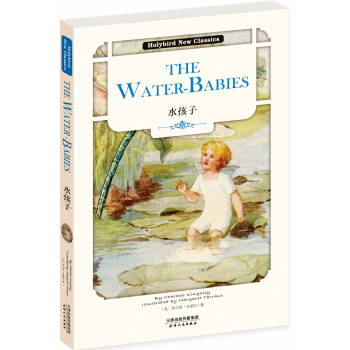

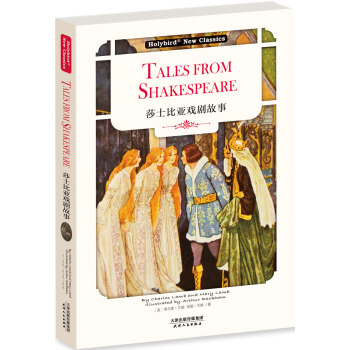
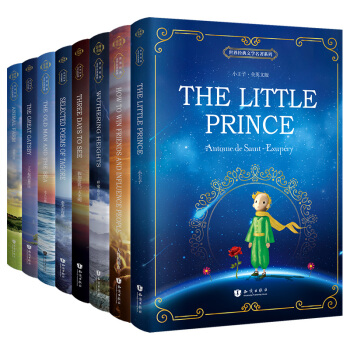
![了不起的盖茨比+老人与海+假如给我三天光明+一九八四(套装共4册 全英文版)/世界经典文学名著系列 [The Great Gatsby+The Old Man and the Sea+Three Day] pdf epub mobi 电子书 下载](https://pic.tinynews.org/12160516/58f86000N3ce4828e.jpg)
![小王子+老人与海/全英文原版经典名著系列读物(套装共2册)昂秀书虫 [The Little Prince+ The Old Man and the Sea] pdf epub mobi 电子书 下载](https://pic.tinynews.org/12062508/581aecc7N78331f62.jpg)

![世界经典文学名著系列:简爱+1984+呼啸山庄+海底两万里+傲慢与偏见(套装共5册 全英文版) [Jane Eyre+Nineteen Eighty-Four +Wuthering Heights+] pdf epub mobi 电子书 下载](https://pic.tinynews.org/12057135/58db1e45N6b78ac39.jpg)
![了不起的盖茨比+呼啸山庄+傲慢与偏见(套装共3册)全英文版 世界经典文学名著系列 [The Great Gatsby +Wuthering Heights+Pride and Prej] pdf epub mobi 电子书 下载](https://pic.tinynews.org/12102181/59dc609fN2ac23b4b.jpg)
![小王子+了不起的盖茨比(共2册)全英文版 世界经典文学名著系列 昂秀书虫 [The Little Prince+ The Great Gatsby] pdf epub mobi 电子书 下载](https://pic.tinynews.org/12009533/582bec87N24284345.jpg)
![假如给我三天光明+小王子+老人与海(套装共3册)全英文版 世界经典文学名著系列 [Three Days to See+The Little Prince+The Old Man an] pdf epub mobi 电子书 下载](https://pic.tinynews.org/12102187/5a0cf072N4448e7e2.jpg)
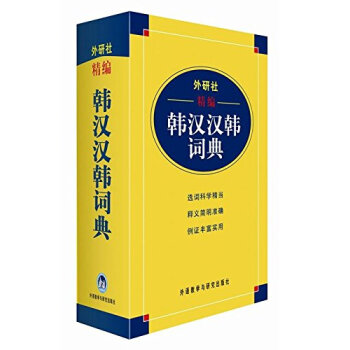
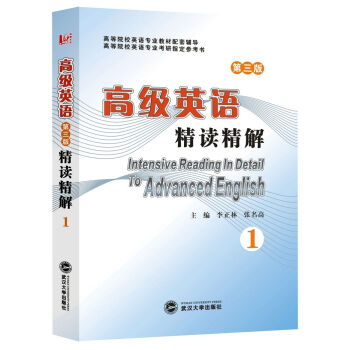
![世界经典文学名著系列:简爱+1984 +傲慢与偏见(套装共3册 全英文版) [Jane Eyre+Nineteen Eighty-Four + ride and Prejudic] pdf epub mobi 电子书 下载](https://pic.tinynews.org/12058821/5a0cf1e8N398e86bb.jpg)
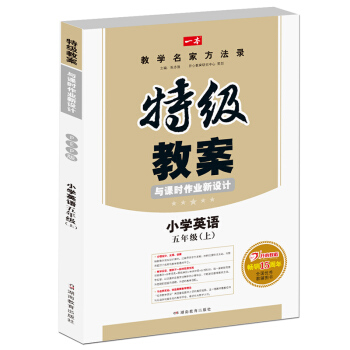
![朗文·外研社·新概念英语4(学生用书)(盒装CD版)(附光盘3张) [New Concept English] pdf epub mobi 电子书 下载](https://pic.tinynews.org/10034724/rBEhVFMhXCUIAAAAAAsrpjwEOdsAAKBqADoTNoACyu-693.jpg)
![朗文外研社:新概念英语1(英语初阶 新版 英音版 磁带2盘) [New Concept English (New Edition)] pdf epub mobi 电子书 下载](https://pic.tinynews.org/10367321/5798077eN1b476992.jpg)
